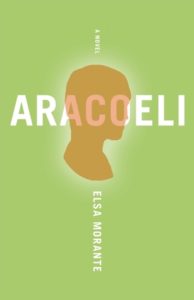 Title: The Lying Life of Adults (Goodreads)
Title: The Lying Life of Adults (Goodreads)
Author: Elena Ferrante
Translator: Ann Goldstein
Published: Europa Editions, 2020
Pages: 322
Genres: Contemporary
My Copy: Paperback
Buy: Amazon, Book Depository, Kindle, Wordery (or visit your local Indie bookstore)
What I love about reading Elena Ferrante is the way she is always writing about the experiences of women from a social-political standpoint. She always gives the reader a wide range of emotions and can make them feel uncomfortable with the situation but in a way that does not cause many to abandon her books. I have read all Ferrante’s works of adult fiction and was happy to see that my in-real-life book club was doing her latest release The Lying Life of Adults. Honestly, sometimes I think I go to my book club just to complain about the books we read, but I also attend to try and improve my ability to talk about literature with real life humans.
The Lying Life of Adults is the story of Giovanna, who is a young woman that is quickly discovering all the drama happening within her family. She learns why her father and her aunt Vittoria do not talk, and basically uncovers all the hostility and fighting that has been happening in the family all her life. This is not the easiest information to uncover, the adults all have their own side of the stories and they are all lying to make themselves look better in every situation. Ferrante’s books always deal with domestic drama and The Lying Life of Adults is no different, but what I really enjoyed about this novel, is the way it focuses on the lies.
It is hard to talk about The Lying Life of Adults without mentioning the Neapolitan series, those books got plenty of attention and will be the basis of all Ferrante critiques. Which is justifiable, the approach Elena Ferrante takes when writing really focuses heavily on the life of women living in Naples, particularly looking at sexism and domestic abuse. I find that The Lying Life of Adults seems to have similarities with The Story of a New Name, book two in the Neapolitan series. Both books have characters in the late teens, exploring the balance between family, love and academia. This journey fascinates me; I want to learn about young women discovering just how messed out their family is, while also realising how horrible men are, all while trying to decide their plans for the future.
Personally, I would have preferred if Elena Ferrante really dove into the psychological state of Giovanna. Not to mention the exploration into the feelings of attraction, sexuality, and emotion. There is so much that could have been unpacked if she wanted to really explore the damaging nature of these lies, and the effects they would have had on Giovanna’s outlook and future. I am fascinated for a deeper dive into the emotional damage, but I understand why Ferrante grazed over these topics. Not everyone wants to explore domestic abuse in so much detail and it would greatly change the tone of the novel.
If you have never read Elena Ferrante before, this might be a good place to start, I personally recommend The Days of Abandonment as a starting point, but this would work too. Fans of the Neapolitan series may not need any encouragement to check out The Lying Life of Adults but I hope you do. Obviously, I really enjoyed this novel, I think Ferrante is doing an excellent job at helping bring translated literature into the spotlight, thanks to the amazing work of Ann Goldstein.

 Title: Aracoeli (
Title: Aracoeli (